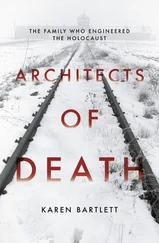C. Harris - Who Buries the Dead
Здесь есть возможность читать онлайн «C. Harris - Who Buries the Dead» весь текст электронной книги совершенно бесплатно (целиком полную версию без сокращений). В некоторых случаях можно слушать аудио, скачать через торрент в формате fb2 и присутствует краткое содержание. Год выпуска: 2015, Издательство: Penguin Publishing Group, Жанр: Исторический детектив, на английском языке. Описание произведения, (предисловие) а так же отзывы посетителей доступны на портале библиотеки ЛибКат.
- Название:Who Buries the Dead
- Автор:
- Издательство:Penguin Publishing Group
- Жанр:
- Год:2015
- ISBN:нет данных
- Рейтинг книги:4 / 5. Голосов: 1
-
Избранное:Добавить в избранное
- Отзывы:
-
Ваша оценка:
- 80
- 1
- 2
- 3
- 4
- 5
Who Buries the Dead: краткое содержание, описание и аннотация
Предлагаем к чтению аннотацию, описание, краткое содержание или предисловие (зависит от того, что написал сам автор книги «Who Buries the Dead»). Если вы не нашли необходимую информацию о книге — напишите в комментариях, мы постараемся отыскать её.
Who Buries the Dead — читать онлайн бесплатно полную книгу (весь текст) целиком
Ниже представлен текст книги, разбитый по страницам. Система сохранения места последней прочитанной страницы, позволяет с удобством читать онлайн бесплатно книгу «Who Buries the Dead», без необходимости каждый раз заново искать на чём Вы остановились. Поставьте закладку, и сможете в любой момент перейти на страницу, на которой закончили чтение.
Интервал:
Закладка:
“Yes,” said Hero. Princess Augusta, elder sister to King George III, was both aunt and mother-in-law to the Regent and had taken refuge in England after the death of her husband, the Duke of Brunswick, in battle against Napoléon.
“Because of her imminent death, the workers were urged to proceed quickly. Several days ago, they accidentally broke through a thin brick wall into the vault containing Henry VIII and Jane Seymour. The vault’s general location was known, but over the years its exact placement had been forgotten.” He slipped a delicate gold snuffbox inlaid with a swirl of seed pearls from his pocket and flicked open the lid with his thumbnail. “According to records, the vault should have contained only Henry and his favorite Queen. But in looking through the aperture they’d made, the workmen were surprised to see not two, but three adult-sized coffins.”
“The third being that of Charles I?”
“As it happens, yes.” He lifted a delicate pinch of snuff to one nostril and sniffed. “The Dean of the chapel immediately contacted Carlton House. Given the importance of the find, I personally made the journey out to Windsor to inspect the discovery on behalf of the Prince.”
“And?”
“Henry VIII’s coffin is in decidedly poor condition. You can see where a crude opening had at some point been cut in the wall of the vault immediately above it and then filled in. Frankly, I suspect the opening was made by the men who lowered the third coffin into the vault, and they accidentally dropped it on Henry. Jane Seymour, however, was off to one side and intact.”
“And the third coffin?”
“The third coffin was still covered by its dusty black velvet pall, which, upon being raised, revealed a plain lead coffin encircled by a strap inscribed ‘King Charles, 1648.’” He nodded to the metal scroll. “Like this.”
“You had the coffin opened?”
“Not at all. Indeed, the Dean and Canons have strict instructions to guard the site well. The Prince is anxious to personally hold a formal examination of the contents of the third coffin as soon as the construction of the passage is complete-and Princess Augusta is dead and buried, of course.”
“Why? I mean, why examine the remains of Charles but not the others?”
Jarvis tucked the snuffbox into his pocket. “I’m afraid His Highness has long maintained a rather morbid fascination with the Stuarts. He says he wishes to answer some historical questions, but I suspect he’s mainly driven by a desire to look upon the mortal remains of a British royal so unpopular as to lose his head at the hands of his subjects.” His gaze returned to the metal fragment. “If this strap has indeed come from Charles’s coffin, the Regent will not be pleased to learn that someone has interfered with the burial before he’s had the chance to do so himself.”
“Do you think there could be political implications to this?” asked Hero.
“Anything involving the Stuarts is always cause for concern-as is the relationship between Stanley Preston and the Home Secretary.” He watched her fold the section of lead back into its brown paper wrapping, then said, “I don’t like your involvement in this, Hero.”
She looked over at him. “If it were up to you, I would neither write about the situation of London’s poor nor investigate murders-or even nurse my own newborn son. Pray tell, how would you have me pass my days?”
“Shopping in Bond Street. Embarking on an endless round of morning calls. Reading the latest lurid romance. . Surely you know better than I how women of your station spend their time.”
She smiled. “I enjoy shopping and reading.”
“Then you should do more of it.”
“I’m not like that,” she said, suddenly serious.
His lips flattened into a tight line. “You should have been born a boy.”
“I like being a woman just fine.” She kissed his cheek, then carefully readjusted the tilt of her hat. “Will you be sending someone out to Windsor?”
He declined to answer her question.
But later, as she was leaving Carlton House, she saw one of the tall former guardsmen in Jarvis’s employ crossing the courtyard at a run.
Chapter 10
Once, years before, when Sebastian was a small boy in short coats, he befriended a tall, strapping young footman named Luge. Sebastian was the son of an earl, while Luge was in service to Sebastian’s grandmother, the Dowager Countess of Hendon. But for a brief, shining moment out of time, man and boy had connected in a way that transcended such ordinary impediments as station, age, and race.
Afterward, Sebastian would wonder at the good-natured patience of the handsome, ebony-skinned footman who had indulged the boundless curiosity of a small boy who could listen for hours to Luge’s tales of the sun-drenched sands and crystal-clear seas of Barbados, the island of his birth. Luge had been only eight years old when the Dowager Countess purchased him at a slave market in Bridgetown and brought the child back to England as her page. Once, he even showed Sebastian the brand on his shoulder and grinned as the boy reached out to trace the initials of the master who had marked Luge as his property the way Sebastian’s father marked his own horses and cattle.
“Did it hurt?” Sebastian asked in awe.
“I reckon,” said Luge. “But I don’t remember. I was still little.”
Sebastian had seen brands on ragged men and women in the streets-usually a “T” for “thief” or an “M” for “manslaughter.” But the thought of anyone doing that to a small child horrified him so much that he stayed away from Luge for a few days. And the next time Sebastian visited his grandmother, he was told that Luge had taken off his powdered wig, set it atop his folded velvet livery, and simply walked off into the gathering dusk.
The Dowager advertised for his return, although no one paid much attention anymore to advertisements for runaway slaves. A succession of court cases had reinforced the popular belief that the air of England was “too pure for a slave to breathe.”
But what was true of the air of England was not true of the air in England’s colonies. Even those who supported the freeing of England’s ten to fifteen thousand slaves often grew fainthearted at the thought of the financial havoc that would result from the emancipation of those who toiled to produce the sugar, tobacco, cotton, indigo, and rice that made England wealthy and powerful.
Some twenty years after Luge walked away to freedom, Sebastian had landed with his regiment in Barbados to find the island little changed from the colony Luge had described. A dazzling sun still soaked golden sands lapped by achingly blue waters, and vast weathered docks swarmed with ebony-skinned men in canvas trousers, their sweat-sheened backs crisscrossed with the scars of past floggings.
Such sights did not shock Sebastian, for the lash was applied with brutal frequency to the men who enlisted or were impressed into His Majesty’s Army or Navy; even Englishwomen were still sometimes stripped naked to the waist and whipped at the cart’s tail. But as he climbed through Bridgetown’s dusty streets, past low buildings with long windows shaded by deep verandas and shuttered against the oppressive heat, he came upon an open square crowded with African men, women, and children of all ages. Some sat blankly staring into space, while others huddled together, mothers hugging infants to their breasts as solemn, wide-eyed toddlers clutched their skirts. A few planters, sun-reddened faces shadowed by broad-brimmed hats, circulated amongst them. The air was thick with the smell of cigar smoke and human sweat and wretched despair, and Sebastian drew up abruptly as the realization of what he was witnessing slammed into him.
Читать дальшеИнтервал:
Закладка:
Похожие книги на «Who Buries the Dead»
Представляем Вашему вниманию похожие книги на «Who Buries the Dead» списком для выбора. Мы отобрали схожую по названию и смыслу литературу в надежде предоставить читателям больше вариантов отыскать новые, интересные, ещё непрочитанные произведения.
Обсуждение, отзывы о книге «Who Buries the Dead» и просто собственные мнения читателей. Оставьте ваши комментарии, напишите, что Вы думаете о произведении, его смысле или главных героях. Укажите что конкретно понравилось, а что нет, и почему Вы так считаете.












